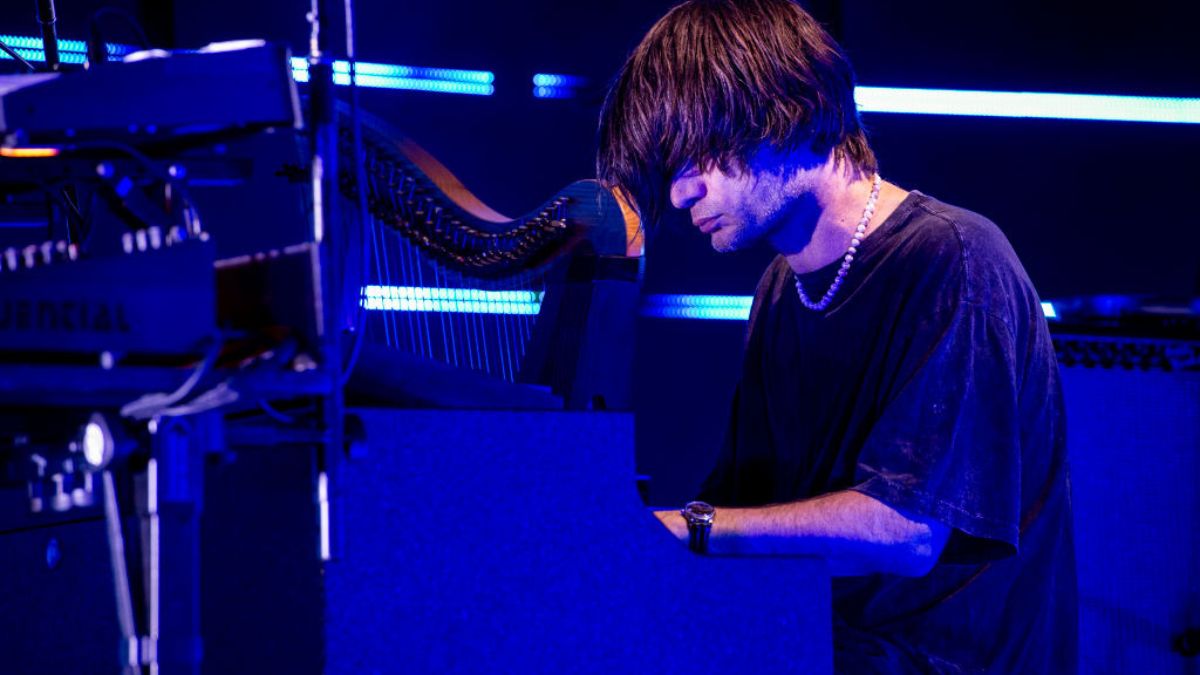
Mainstream audiences may not be familiar with the work of Mark Duplass and his co-producer brother Jay Duplass. However, cinephiles who have been following the duo’s work over the past few years have certainly recognized their ability to craft quirky, inspired tales stretching across genres like sci-fi, horror, romance, comedy and drama.
Ever since the release of Baghead in 2008, the Duplass brothers have established their savvy for extracting emotionally grounded character-driven stories from the unlikeliest of places. Films like Safety Not Guaranteed and The One I Love are perhaps two of their most high-profile releases thus far, but now that Netflix has struck a four-picture deal with Duplass Brothers Productions, hopes are high that their profile will skyrocket in the immediate future. If Blue Jay – the first film to spring from that Netflix contract – is a sign of what’s to come, then subscribers of the streaming service are in for some great storytelling.
Mark Duplass and Sarah Paulson star as Jim and Amanda, two childhood sweethearts who take a stroll down memory lane after a chance encounter reunites them, but while most films would use this “meet-cute” scenario as an entrance into a cliche-ridden romantic comedy, Blue Jay takes the high road. At times painfully awkward and at others charmingly endearing, the film is far more grounded and melancholy than traditional Hollywood fare.
Rather than spoon-feeding the characters’ backstory, Blue Jay embraces the reality of Jim and Amanda’s meeting, dropping in details like puzzle pieces. Those viewers in search of the next Kate Hudson or Sandra Bullock rom-com may find themselves bored by the lack of pratfalls or cheesy gags. However, Blue Jay‘s script – written by Duplass himself – has a lot more substantive things on its mind and uses this close examination of one former couple’s relationship as a microcosm to focus on larger issues already lingering within the social consciousness.
Principally, the film – named after the couple’s old haunt – concerns itself with the rose-colored glasses of nostalgia and the emotional consequences that result when life heads down an unexpected path. Taking a contemplative look back, Blue Jay finds its two characters (Duplass and Paulson are essentially the only ones onscreen throughout, we should note) in a vastly different position than when they last met, and the film rightfully takes an intimate look at how time has changed them and the roads not taken. Given its nostalgic focus, Blue Jay is wisely presented in black and white, and director Alex Lehmann expertly employs this as a visual shorthand to (ironically enough) color the fleeting nature of time and the story’s themes. How deftly the film succeeds is even more impressive considering it was shot over only seven days.
Following in the tradition of films like Before Sunrise (and its sequels), Blue Jay is driven by nuance, conversation and the crackling chemistry of its two lead actors. Luckily, Duplass and Paulson – who recently won an Emmy for her work on The People v. O.J. Simpson: American Crime Story – bring such aplomb to their performances that viewers may find it hard to take their eyes away from the screen.
These are two characters who have heaps of emotional baggage behind and between them. Duplass and Paulson capture such emotional complexity with a smile, glance or a simple turn of phrase that – although the truth behind their relationship unfolds slowly over the course of the film – the glimmer of a past love is apparent right from the start. Along the way, Blue Jay digs deep into the fragility of human emotion, a theme that is ably supported by its melodic Julian Wass score, but it is the collective powers of Duplass and Paulson who really make the material sing.
Blue Jay made its debut at the Toronto International Film Festival last month and has already received rapturous praise from the critical community. However, what really makes the film a standout – aside from the aforementioned performances – is the timeliness of its thematic focus. Whether thanks to the rapid development of technology or some other urge to look back rather than remain in the moment, society has become obsessed with nostalgia.
Every bit of our culture is so fixated on revisiting or repackaging the past that the time is ripe for a film like Blue Jay to delve deep into the fruitlessness of regret and the relentless ravages of time. The fact that the film makes a bittersweet statement about it all will hopefully enlighten viewers on their own tendency to revel in their past and inspire them to more carefully consider the places that their choices may take them in the future.










Published: Oct 11, 2016 10:18 am